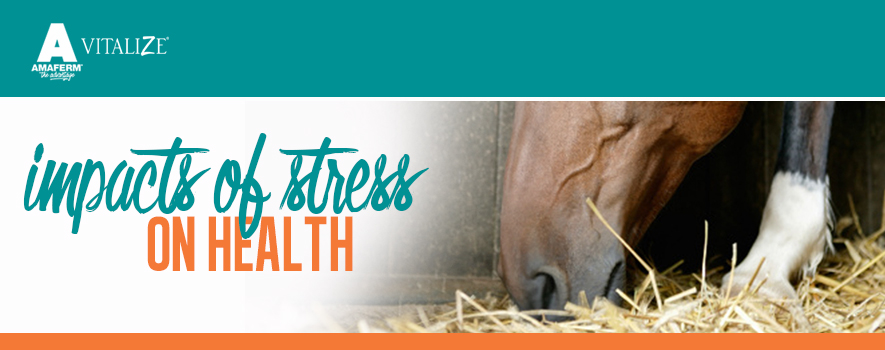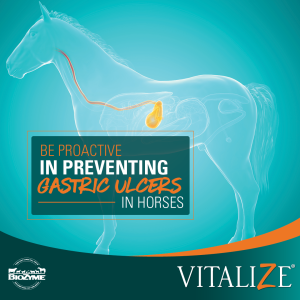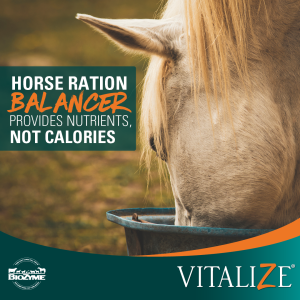In all species stress is inevitable, and horses are no exception. Whether the horse is stressed from transport, competition, a change in their daily routine or a shift in the weather, the ultimate result is an increase in the stress hormone cortisol and a cascade of effects on health. Two of the most common impacts of stress on a horse’s health are ulcers and decreased immunity. Although eliminating stress completely is unrealistic, there are several things horse owners can do from a management perspective to reduce the effects of stress.
Proper feeding is essential to combating ulcers. Horses are designed as grazing animals and, as such, their stomach secretes gastric acid constantly, even when they are not eating. For this reason, horses should have adequate access to forage, either on pasture or with several hay feedings during the day. Horses that are more prone to ulcers should be fed a legume hay like alfalfa because it has high levels of calcium. The calcium effectively absorbs excess stomach acid. Extra calcium can also be provided in the diet through a variety of daily supplements such as Vitalize® Equine High Performance.
Decreased immunity is a well-documented effect of stress. Many pathogens are “opportunistic”, meaning they infect a host when the immune system starts to let its guard down. The gut is the body’s first defense against ingested pathogens and, as such, 70% of all immune cells in the body are found in the gut. Good nutrition and overall gut health are important to keep these immune cells fighting as hard as they can. During times of stress, it is necessary to feed the horse to meet nutritional requirements and may be useful to provide a daily supplement to enhance gut health and immunity. One example is Vitalize Digest More Plus, which combines Amaferm® to promote good gut microbes for increased digestion and absorption of nutrients and MOS to sequester and protect against pathogenic gut microbes.



